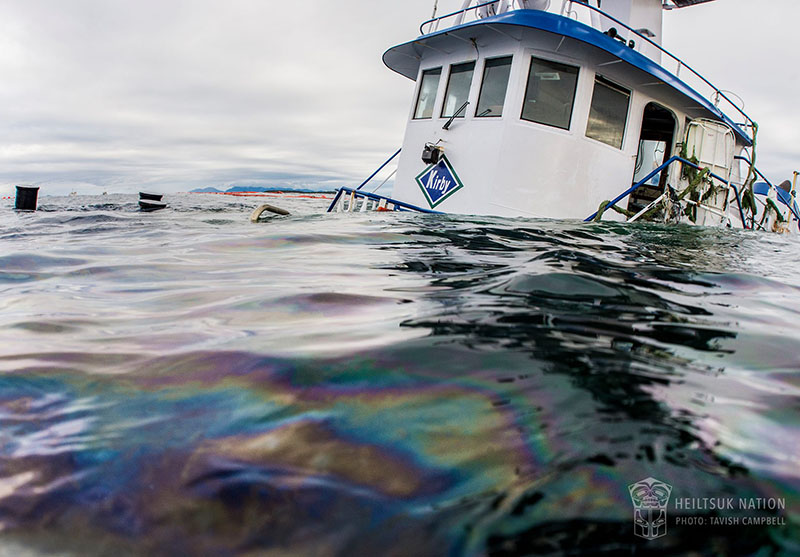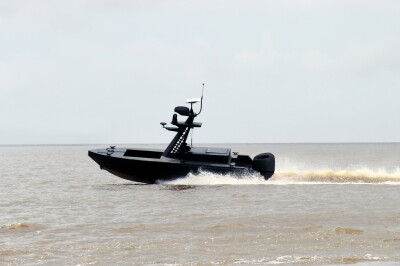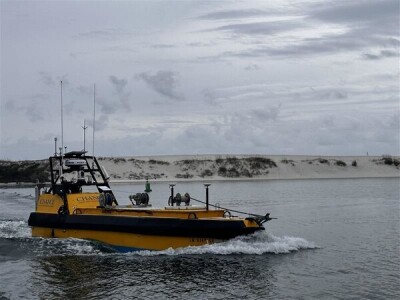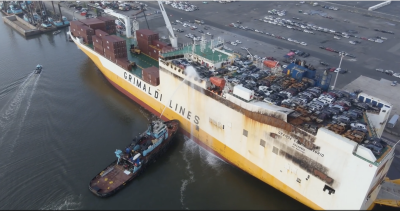The first 48 hours of response to the Nathan E. Stewart tugboat grounding and oil spill was marked by delays, inadequate booms and spill response materials, and confusion over who was in charge during those early hours, according to a report by Heiltsuk First Nation officials.
The Oct. 13, 2016, accident left Kirby Offshore Marine’s tugboat, the 3,400-hp, 95’3”x32’x13’7” Nathan E. Stewart, and 287’5” DBL 55 barge hard aground on the Edge Reef at the entrance to the Seaforth Channel near Bella Bella, British Columbia.
More than 29,000 gals. of diesel fuel leaked, and local waters are still closed to fishing and shellfish harvesting, say leaders of the Heiltsuk community, who since 2010 had pressed Canadian authorities to stop oil tanker and barge shipments through those waters.
“The Heiltsuk undertook this investigation in our territory as an act of defining who we are,” said Heiltsuk Chief Councilor Marilyn Slett, whose nation signed a reconciliation agreement with Canada in March for joint decision-making over land and marine resources in their traditional territories.
“The Heiltsuk were never consulted by Canada on whether we agreed with the Nathan E. Stewart transporting oil through our territories, or with its exemption from having a local pilot,” Slett said in a statement that accompanied release of the report. “The way Canada handled this situation does not reflect the approach the federal government says it wants to take in developing a nation-to-nation relationship.”
The report quotes Heiltsuk on-scene responders, who pressed their boats into service and did what they could to contain the spill. They struggled with booms breaking in heavy swells, without masks and gloves at first and some getting ill from fumes, according to the report.
“I saw a lot of chaos,” said Harvey Humchitt, a hereditary chief of the band. “The booms were not the proper type for the conditions out here. There was no communication, no on-scene command, no clear direction on actions to be taken. It was very upsetting to see how much damage was done in such a short time.”
Along with recounting shortfalls in the immediate response effort, the report say Heiltsuk officials were refused access to records from the Canada Transportation Safety Board — which cited its own ongoing investigation — and Kirby corporate sources. Those included “failed attempts by the Heiltsuk to gain access from the Transportation Safety Board and company to the vessel’s logbook, black box, crew statements, crew training records, barge history and other critical information.”
Within weeks of the Bella Bella incident, the Canadian government pledged $1.5 billion for new marine safety and spill response programs. First Nation and environmental activists continue to campaign for the Trudeau government and British Columbia officials to restrict oil shipments through the Inside Passage.





